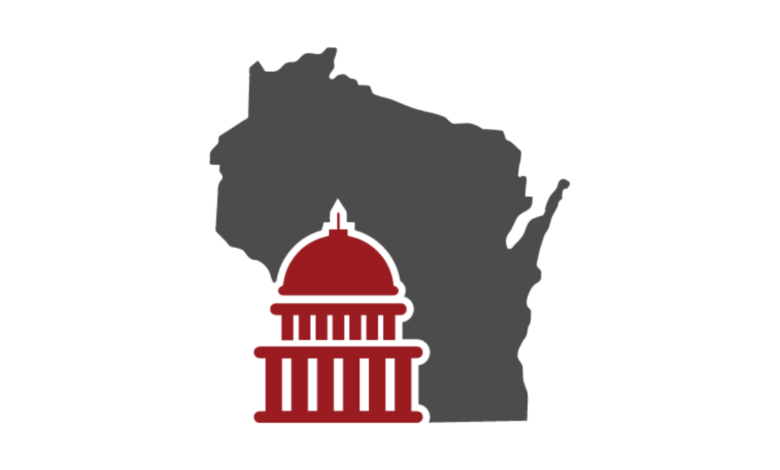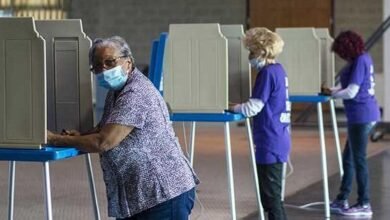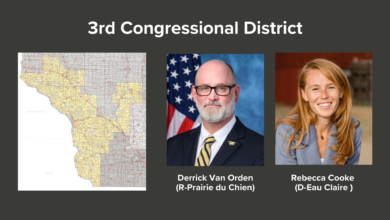Gov. Evers: DNR announce new outreach grant program for lead service line replacement

Federally funded grants will promote community outreach and engagement in efforts to ensure clean, safe drinking water for Wisconsinites
MADISON — Gov. Tony Evers, together with the Wisconsin Department of Natural Resources (DNR), today announced a new grant program that will provide municipal community public water systems with the funds to conduct community outreach efforts in support of ongoing or upcoming lead service line replacement projects.
These grant funds, provided by the Biden-Harris Administration under the Bipartisan Infrastructure Law, will help bolster outreach efforts by encouraging collaboration between municipal systems and locally trusted messengers, such as community-based organizations, to provide consistent, clear communication and public education with residents, property owners, consumers, and community leaders throughout the project planning and implementation. The Lead Service Line Replacement Community Outreach Grant will begin accepting applications Aug. 29, 2024.
“Every Wisconsinite should be able to have clean, safe drinking water right from their tap. Replacing our state’s lead service lines is no small feat, and effective community outreach is vital to the success of these efforts and ensuring that consumers, private property owners, and local community leaders know what resources and tools are available,” said Gov. Evers. “Making sure Wisconsinites have clean drinking water has been a priority of my administration since Day One, and while Republican lawmakers have failed to provide meaningful state investments to help get lead out of our pipes and water, we are grateful to the Biden-Harris Administration, federal partners, and the Bipartisan Infrastructure Law for supporting this important work in Wisconsin.”
According to a 2023 report from the Wisconsin Policy Forum, more than 37,000 lead service lines have been replaced or turned off since 2018, which is more lines replaced or turned off in just five years than in the previous two decades.
A municipal community public water system is a public water system that serves 15 or more service connections or regularly serves a community of at least 25 residents for at least six months of the year and is owned by a city, town, village, county, sanitary district, or other government entity or government-owned institution. It is critical for municipalities to replace lead service lines in their entirety, both the lines on private property and the lines on public property, as lead exposure is dangerous for people of any age, but most especially for kids, infants, and pregnant women. When people ingest lead through drinking water, it accumulates in their bodies over time, resulting in damage to the brain, nervous system, red blood cells, and kidneys. Lead service line replacement is one of the best ways to minimize the risk of lead exposure through drinking water.
“This new grant program will provide much-needed outreach funding to support lead service line replacement,” said Steve Elmore, DNR Drinking Water and Groundwater program director. “This is an ideal time for municipal systems to foster trust and cooperation with their customers while, at the same time, safeguarding the quality of their drinking water.”
Gov. Evers declared 2019 the Year of Clean Drinking Water to highlight the need for meaningful investments to ensure Wisconsinites have clean, safe drinking water that is free of harmful contaminants like PFAS, lead, and nitrate. Since then, Gov. Evers has championed efforts to replace lead service lines, including signing Executive Order #36 that created a position at the Wisconsin Department of Health Services to serve as the coordinator of the state’s efforts to address Wisconsin’s lead crisis through collaboration across state agencies. Most recently, in his 2023-25 biennial budget proposal, the governor proposed providing $200 million for the replacement of lead service lines through the Safe Drinking Water Loan Program and modifying current law to allow utilities to provide financial assistance in the form of 100 percent grant funding to support the replacement of lead service lines for property owners. Unfortunately, both of these provisions were removed by Republican legislators on the Joint Committee on Finance. Gov. Evers also proposed additional state funding for lead service line replacement in his 2019-21 and 2021-23 biennial budget proposals. Unfortunately, legislative Republicans also blocked these important investments as well.
Additionally, using funding from the Safe Drinking Water Loan Program and the Bipartisan Infrastructure Law, in October 2023, Gov. Evers announced a more than $402 million investment to support drinking water improvement projects in 106 municipalities across the state. This investment included more than $30 million for the city of Milwaukee to replace lead service lines.
Now, Wisconsin is one of four states leading the renewed effort for replacement by participating in the Lead Service Line Replacement Accelerators Program, and in May, the U.S. Environmental Protection Agency announced Wisconsin would receive more than $83 million to help the state identify and replace lead service lines under the Bipartisan Infrastructure Law. In total, Wisconsin will receive more than $900 million in additional funding from the Bipartisan Infrastructure Law to support the state’s environmental loan programs.
Learn more about the Lead Service Line Replacement Community Outreach Grant and how to apply on the DNR’s webpage here.
An online version of this release is available here.
Source link



